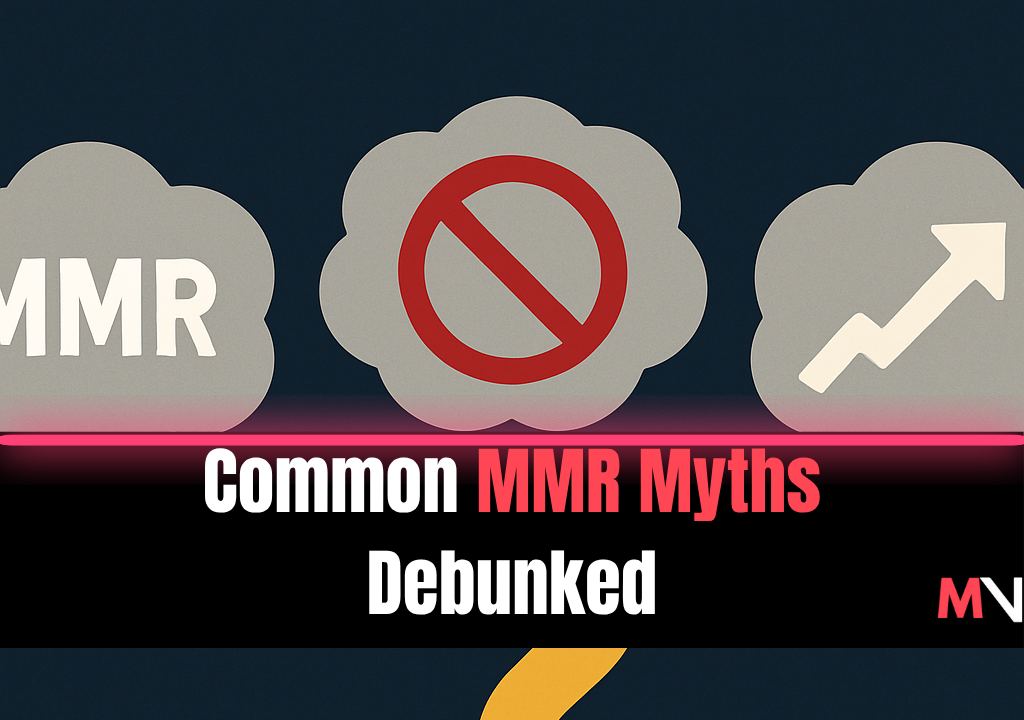Common MMR Myths Debunked: What Really Affects Your Valorant Rating
If you’ve spent any time playing Valorant, you’ve likely encountered a variety of myths about the MMR (Matchmaking Rating) system. As one of the key factors influencing your rank progression, MMR plays a huge role in determining who you’re matched with and how your rating changes after each game. However, MMR can be a complex system, and there are several misconceptions that circulate among players.
In this blog, we’ll take the time to debunk some of the most common MMR myths and clarify what really impacts your Valorant rating. Whether you’re looking to improve your performance or simply understand the system better, this guide will provide you with accurate information to help you progress more effectively.
Myth 1: Winning or Losing a Match Determines MMR Changes
Reality: MMR in Valorant is not solely determined by whether your team wins or loses a match. While the match outcome is important, individual performance plays a crucial role in adjusting your MMR.
- Impact of Individual Performance: Even in a loss, if you perform exceptionally well (e.g., securing a high K/D, getting impactful kills, or using abilities strategically), your MMR can still increase. Conversely, poor individual performance, even if you win, can result in only a small MMR gain or even a slight decrease.
- Team Performance: While MMR takes into account team success, it’s primarily influenced by how well you contribute to that success. If you carry your team or play a crucial role in securing the win, you’re more likely to see a MMR increase, regardless of whether your team wins or loses.
Myth 2: You Have to Win Every Match to Rank Up
Reality: While winning games certainly helps, it’s not the only factor that impacts your MMR. Valorant's matchmaking system also rewards consistent individual performance over time.
- Consistency Over Time: MMR is about your long-term performance. Winning isn’t the only way to rank up; consistently performing well (even in a loss) shows that you have the skills to progress.
- Losses Aren’t the End: Losing streaks are a natural part of climbing the ranks. The system allows for fluctuations in MMR, so don’t be discouraged if you experience a few losses. If you consistently perform well and learn from your mistakes, your MMR will rise in the long run.
Myth 3: The More Matches You Play, the Higher Your MMR
Reality: Playing a large number of matches doesn’t automatically result in a higher MMR. In fact, quality over quantity matters much more.
- Playing with Purpose: Simply playing a large number of matches will not guarantee MMR progression. Your MMR will only increase if you consistently play well and make a positive impact on your team’s success. Focusing on improving your game, learning from each match, and understanding your weaknesses will ultimately lead to better progress.
- Avoiding Tilt and Bad Habits: MMR can be negatively affected by poor gameplay decisions or emotional frustration (tilt). Playing more matches when you’re tilted or not focused will not help you improve your rating. It’s better to take breaks, play when you’re focused, and consistently improve your gameplay.
Myth 4: Playing with Friends Will Automatically Boost Your MMR
Reality: While playing with friends can enhance your team coordination and provide a more enjoyable experience, it doesn’t guarantee automatic MMR increases.
- Impact of Team Coordination: Valorant is a team-based game, and playing with friends can improve teamplay and communication. However, your MMR is still based on individual performance and the outcome of the match. If you’re matched with lower-ranked players or struggle with coordination despite playing with friends, it can still impact your MMR negatively.
- Skill Difference Matters: If you’re playing with friends of varying skill levels, the matchmaking system may place you against stronger opponents, which can either be a challenge or an opportunity for growth. Playing with friends can result in uneven MMR gains, especially if your team isn’t as coordinated or doesn’t perform well.
Myth 5: Your MMR is the Same as Your Visible Rank
Reality: While your rank is a direct reflection of your MMR at any given moment, the two are not synonymous. Your visible rank (Iron, Bronze, Silver, etc.) only provides a snapshot of your MMR after a series of games.
- Rank vs. MMR: Your rank is not updated instantly after each match. It’s influenced by your MMR changes, but it’s only updated periodically. This means that your MMR can be much higher or lower than your visible rank.
- MMR vs. Rank Inconsistencies: If you’ve recently performed well and your MMR has increased but your rank hasn’t caught up yet, you may find yourself facing tougher opponents despite not having a high visible rank. Similarly, if your MMR decreases after a few losses, your rank might lag behind your actual skill level for a while.
Myth 6: Playing More Aggressively Will Always Increase Your MMR
Reality: While aggression can be effective in Valorant, playing too aggressively without considering strategy and positioning can actually harm your MMR.
- Aggression vs. Strategy: The best players are those who can balance aggression with strategy. If you’re consistently going for aggressive plays without considering team coordination, map positioning, and smart ability usage, your MMR may drop because your individual performance may not contribute enough to the team’s success.
- Smart Aggression: The key to improving your MMR with aggression is to use it smartly. Entry-fragging, making well-timed plays, and being aware of your surroundings can help you climb the ranks, but mindless aggression without strategy or team coordination can backfire.
What Really Affects Your MMR?
Ultimately, your MMR is most impacted by a few key factors:
- Individual Performance: Your ability to perform consistently with your chosen agent, use your abilities effectively, and contribute to the team’s success.
- Team Success: While individual performance matters, MMR is also based on how well your team plays together. Communicating, coordinating, and executing strategies effectively will positively influence your MMR.
- Consistency: Continuous improvement in your gameplay, along with consistent positive performance, will lead to steady MMR gains.
Tags

admin
Author




